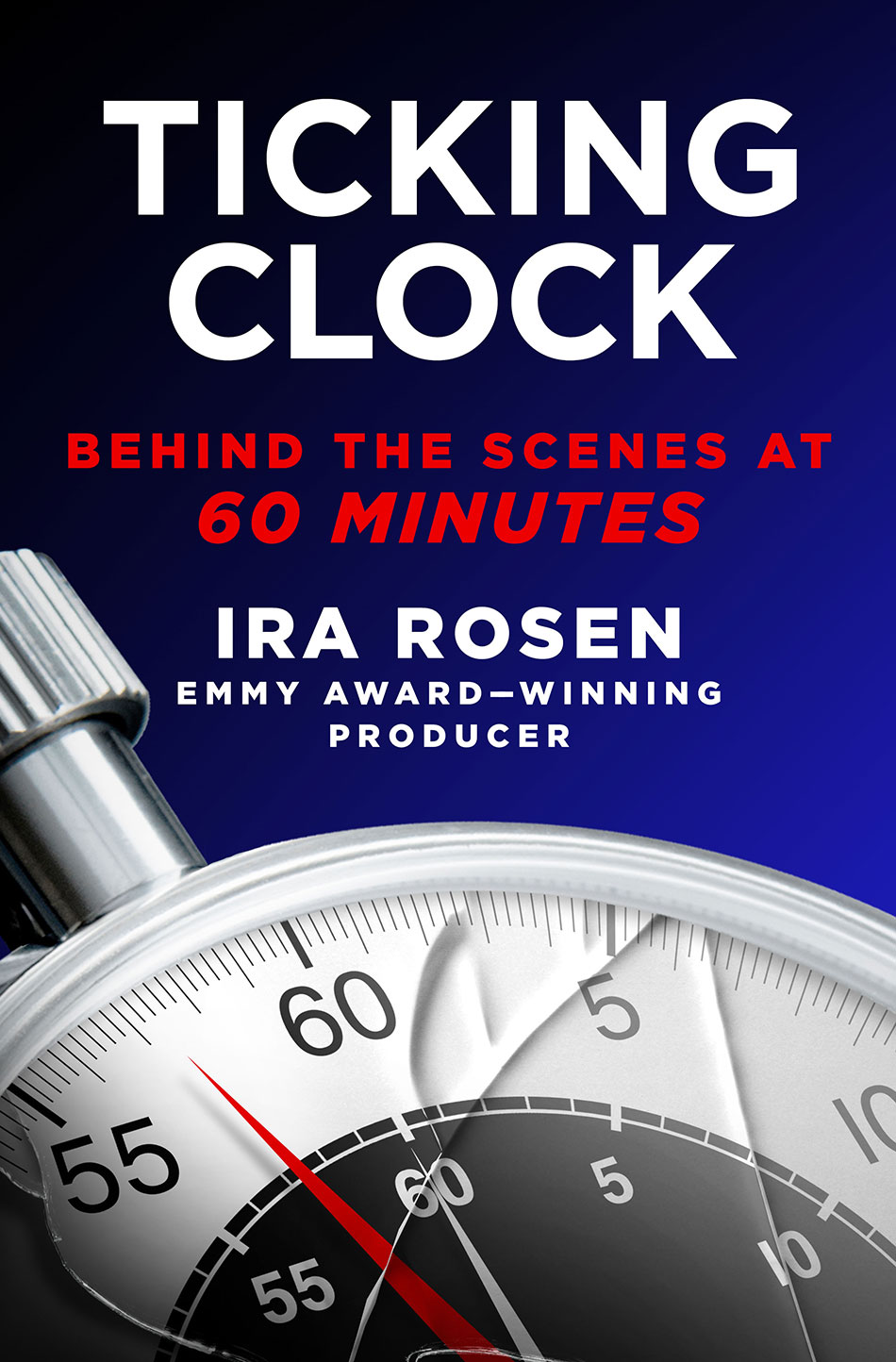A Peek Inside ‘60 Minutes’
Longtime producer Ira Rosen shares about working closely with Mike Wallace

The smarter way to stay on top of broadcasting and cable industry. Sign up below
You are now subscribed
Your newsletter sign-up was successful
Ira Rosen has authored Ticking Clock: Behind the Scenes at 60 Minutes, based on the almost 25 years he spent as a producer at the famed newsmag. Rosen worked closely with Mike Wallace, whom he depicts as alternately a brilliant reporter and a bully. After he shifted to ABC News, Rosen worked alongside Mike’s son, Chris Wallace.
Rosen ended up back at 60 Minutes, and retired in 2019. He likened being a 60 Minutes producer to being Superman. “You have these superpowers to right the wrongs of society,” he said. Retiring has been a bit of a comedown. “Now I’m back to being Clark Kent,” he quipped.
Rosen shared about his work at 60 Minutes, cable news and President Donald Trump’s future on TV. An edited transcript follows.
B+C: Jeff Fager wrote 50 Years of 60 Minutes a few years ago. What else is there to say about the show?
Ira Rosen: A lot of people don’t realize that the show was always constructed as a producer’s show. [Creator] Don Hewitt hired the best producers in the business. He believed in storytelling. Don’s book was Tell Me a Story, which was kind of his mantra for doing 60 Minutes.
Most of the correspondents have written memoirs, but you rarely have heard from the producers. I tried to give it a producer’s perspective.

B+C: Do you have a most memorable story at 60 Minutes?
The smarter way to stay on top of broadcasting and cable industry. Sign up below
IR: Probably the story I did with Bill Whitaker on the opioid epidemic [“The Whistleblower,” 2017]. It was a series of stories. Whitaker was the last correspondent I worked with and in many ways he was probably the best — incredibly smart, a great interviewer. He’s with you in the trenches; he’ll spend hours and hours working on scripts.
The story we did was about how Congress neutered the powers of the DEA at the height of the opioid epidemic, and took away their powers to enforce against major corporations. We focused on Congressman [Tom] Marino, who led the legislation that took the powers of the DEA away.
Marino was scheduled to be President Trump’s new drug czar. Within two days
of us doing the story, Trump rescinded
the offer.
It was a joint project with The Washington Post. It was probably the most award-winning series in the history of 60 Minutes.
B+C: What do you think of cable news?
IR: I think they’re pandering too much to a particular type of audience. I understand it’s a very segmented reach — either you go for one side of the aisle or the other. I’d like to see them a little bit more even-handed. What happens is, they end up reaching a little bit more to figure out what their particular audience wants and then a lot of times facts get distorted. On both sides of the aisle.
B+C: Do you see journalists today that make you think of Mike Wallace?
IR: Scott Pelley, Bill Whitaker and Lesley Stahl. They’re great interviewers. They’ve studied Mike and they’ve learned from Mike, the good and the bad.
Mike’s genius was, he could look at a total stranger and know exactly what button to push to drive them crazy. It was an art form in some ways. He would bond with them instantly. It would be like he was reading their aura or something, and knew how to get the most out of them.
I think his work is going to be studied years from now in journalism school.
B+C: Anybody outside of 60 Minutes that reminds you of Mike?
IR: Chris Wallace [anchor of Fox News Sunday]. I worked with Chris at ABC and never once in the entire time I worked with him, which was about 13 years, did he ever ask me, what would my father do? He always figured out his own path and his own way of doing things.
He’s probably the best interviewer on TV aside from the group at 60 Minutes.
B+C: Where do you see President Trump in terms of TV? Will he land on a cable net or launch his own venture?
IR: His focus right now is getting rid of his legal troubles. Once that is removed, I think he absolutely is going to run his own cable outfit, maybe have his own show.
He has a lot of businesses that he was away from for four years: he has to do the due diligence about the state of those businesses. Once he works out his legal and business status, you’re definitely going to see him back on television in some way.
Michael Malone is content director at B+C and Multichannel News. He joined B+C in 2005 and has covered network programming, including entertainment, news and sports on broadcast, cable and streaming; and local broadcast television, including writing the "Local News Close-Up" market profiles. He also hosted the podcasts "Busted Pilot" and "Series Business." His journalism has also appeared in The New York Times, The L.A. Times, The Boston Globe and New York magazine.

